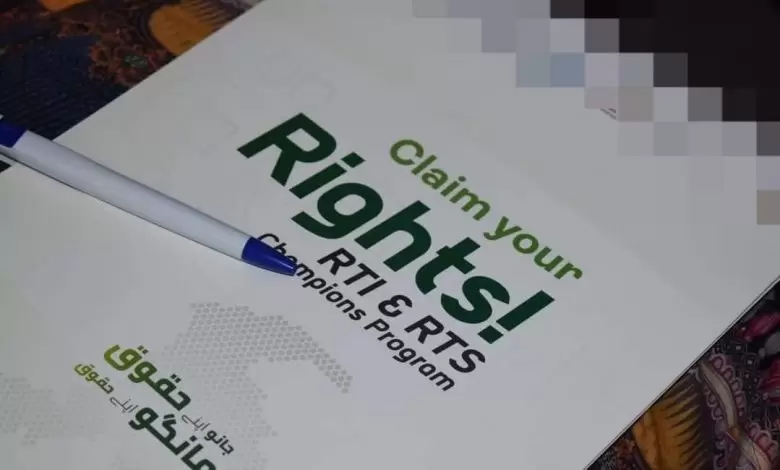
If you seek information about a public institution or its performance but cannot find it, will you stay silent? Not! Access to information from any publicly funded institution is your constitutional and fundamental right, as enshrined in Article 19A of the Constitution of Pakistan.
In alignment with this constitutional right, the Khyber Pakhtunkhwa Provincial Assembly passed the Access to Information Act on October 20, 2013, which was approved by the Governor on November 4, 2013. This law grants every citizen the right to access current information and records held by any public institution.
Under the Access to Information Act, all public institutions are required to provide the public with the information they need promptly. This means you can inquire about the number of employees, expenses, budget, money spent on construction projects, the contractors involved, and more. Essentially, the law grants every citizen full access to all information of public importance.
However, there are certain types of information that citizens cannot request, which we will discuss later.
You can request information from any organization funded by public taxes, whether it is the education department, health department, police department, C&W department, any head of district administration, or any representative of the provincial government. Each department has a Public Information Officer (PIO) responsible for handling such requests.
To obtain information, you need to apply to the PIO, clearly specifying the required information. The application can be submitted in person, by post, or via email. Importantly, no public body has the authority to ask why you need the information.
Upon receiving your request, the public body is legally obliged to provide the required information within ten days. This period can be extended by another ten days if the volume of information or records is substantial and cannot be collected within the initial timeframe.
If a public body does not provide the information within 20 days, you have the option to file a complaint with the Khyber Pakhtunkhwa Information Commission. This independent statutory body is headed by the Chief Information Commissioner and includes two other Commissioners.
Access to information not only helps resolve many issues between the public and government institutions but also restores public confidence in the government. From 2013 to 2023, 24,548 citizens applied for information under this law. Information was provided to 13,398 applicants, while the Information Commission received 10,427 complaints, resolving 8,813 of them, with 1,568 complaints still pending.
Certain information cannot be requested under this law. Public bodies can deny access if the information could harm international relations or national security. Information affecting the conduct of a third person, posing a threat of crime, or harming efforts to apprehend an offender can also be withheld. Additionally, public bodies can refuse to disclose commercial and confidential information.
The government has established an effective law, but it is now the responsibility of citizens to use it and contribute to the improvement of public institutions. In 1946, the United Nations General Assembly declared freedom of information a fundamental human right in its Resolution No. (1) 59, which was later included in Article 19 of the Universal Declaration of Human Rights (UDHR) 1948.
By actively exercising your right to access information, you can ensure transparency and accountability in public institutions, fostering a more open and responsive government.